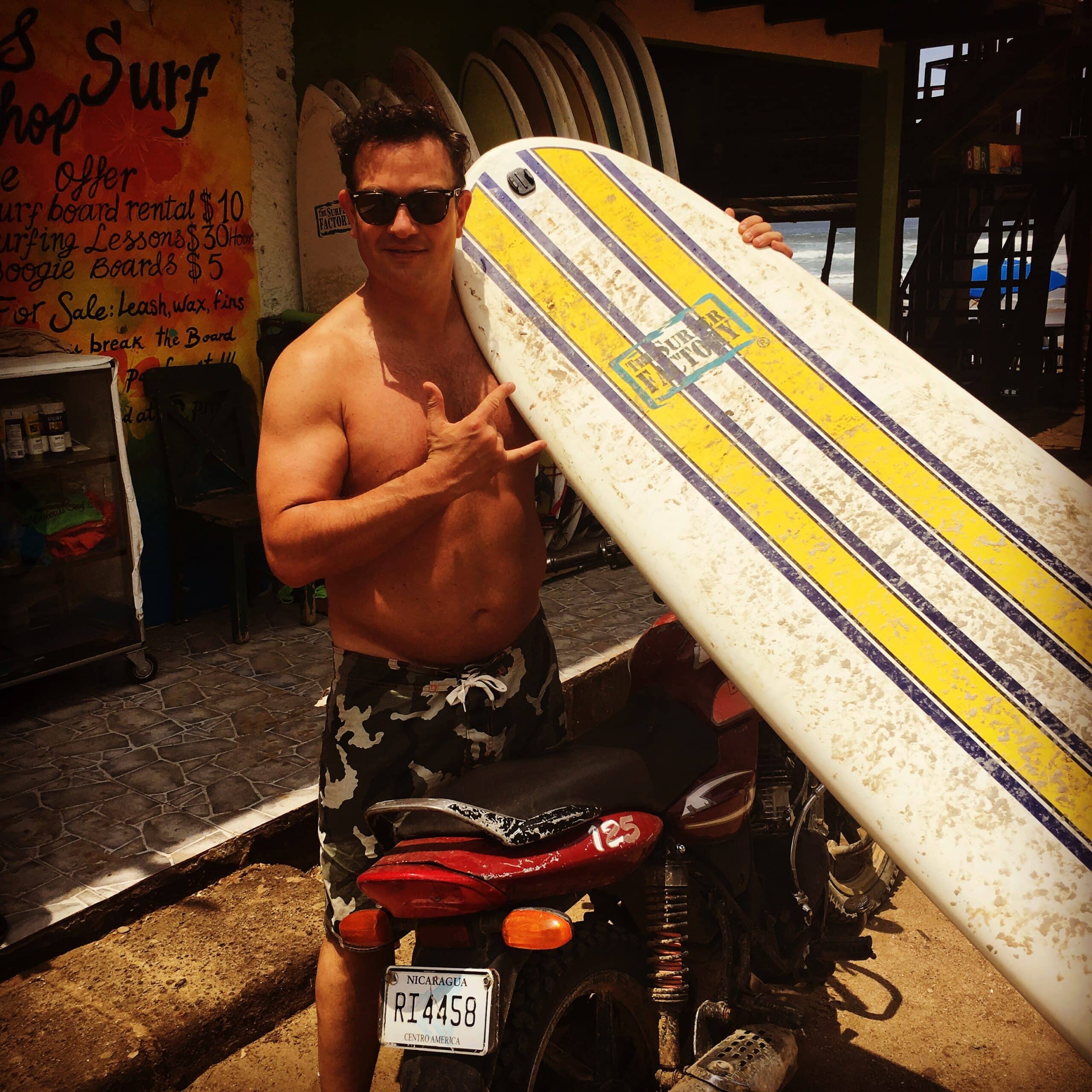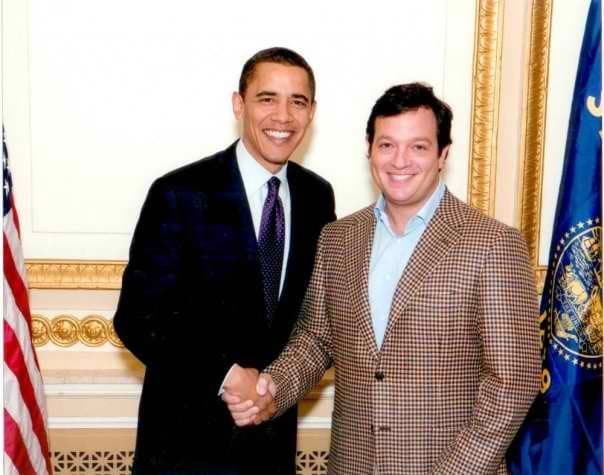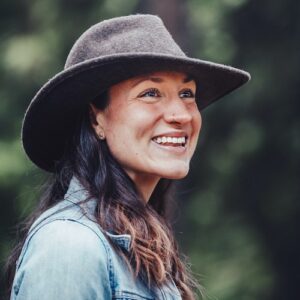Advisor Profile: David Howitt
David Howitt is an entrepreneur, operator, and innovator with over 20 years of experience providing business strategy, financial and legal counsel to global Fortune 100 companies and early stage start-ups. His career accomplishments include investing in, securing funding for, and helping to develop a business vision for successful brands like Oregon Chai, Stumptown Coffee, Pendleton, adidas, Voodoo Doughnut, Salomon, yogitoes, Klim, Bloch, Dave’s Killer Bread, Living Harvest, and many others. David also founded the Meriwether Group.
How did you get involved with The Freshwater Trust?
Oh. It’s been a while. I moved from Michigan to Oregon in 1991 to go to Lewis & Clark Law School. I’m a recovering lawyer. I really had a pull and call to study environment and natural resources law. I thought my work would be in that practice, but my journey went in a different way. My soul however is still very connected to water. I grew up fishing with my grandfather and father on rivers and lakes and they just run in my veins. When I got here, I sought out some groups that I thought were doing impactful work.
What was your first job and what did the journey look like to get to where you are today?
I came out of law school and started to look for jobs. I wanted to get trial experience and ended up getting into Multnomah County’s District Attorney’s office. Then, I was recruited by a pretty big law firm here in town and I learned that the practice of law was really different than the study of law. I set an intention to move in a different direction and to apply whatever skills I had in a more advisory fashion. Oregon Chai started in our kitchen. At the same time, I took a day job at Adidas as corporate general counsel. Then I moved over to run licensing and business development for the brand. All the while, we continued to grow Oregon Chai.
Tell me about Oregon Chai.
My wife was addicted to chai and spent some time traveling in southeast Asia. She looked at what Starbucks was doing with coffee. Coffee was becoming this culturally significant thing. She brewed up the first batches in our kitchen, and she was hand drawing labels on mason jars and peddling it around Portland. Nine years later, we had grown it to a multinational business. It was one of the first certified organic and fair-trade brands. We were really proud, and we thought we had taken it as far as we thought we could. So we sold the company in 2004.
Most universal piece of advice you give:
Whether you’re building a brand or a business or a nonprofit, if it’s authentic to you, meaning it’s born from your dharma or your purpose, you’ve got a much better shot at that thing working.
Second, is that we need to be embracing the power of “and.” You need to have passion, authenticity, heart and artistry, but you also need to either have or surround yourself with traditional business chops. It’s really about having a blend of the two.
How do you connect with rivers now?
I absolutely still fish. I get out as much as I can, which is not as often as I’d like, usually on the Deschutes or the Metolius. I usually take one or two fishing trips a year, a freshwater trip—maybe Wyoming or Montana or Idaho—and one in the salt for bone fish, permit and tarpon.
What’s one thing on your bucket list?
I want to fish for Taimen, a Siberian giant trout, in Mongolia. I’d also love to take a family surf trip to Bali.

David surfing in Nicaragua
Tell us about your perfect workplace.
I would say that we have gotten pretty close to that at the Meriwether group. It’s equal part ashram and office. We get shit done, but it’s very zen.
But if I had to pick my perfect office, it would either be high-speed internet in a cabin near trout runs or a secluded beach with toes in the sand and a nice shore break.
Why work on water? There’s a ton of different issues you could donate your time and money to.
I think part of it is that over the years, my best childhood memories are around water. They are times with my father or grandfather or brothers. My fondest and most pure memories all come from being on or in the water. Some people are called to the desert. Some people are called to the mountains. I feel a pull to water.
Where did the idea come from for “Heed Your Call?”
It was a book that I wrote, and it was never intended to be published. I spent a year taking old journals and organizing them and working with a dear friend to put them in a manuscript. Then I met an author, and he asked me to share the manuscript with him. He then shared it with his publisher, which was Simon and Schuster. I felt like there were a lot of good business books in the world, and there were whole bookstores on spirituality and right-brained artistry, but I hadn’t found a book that created a bridge between the two. We teach our children that they can choose to be an artist, where you’ll likely have a lot of joy and have great friends, but they’ll be broke. Or we tell them that they can go and be a lawyer or executive and make a lot of money but that they’ll likely be miserable. I wanted to wrestle with that.
When you follow your passion and you do what really lights you up, you can align that with abundance.

David was recommended by Senator Ron Wyden to meet President Obama as he wanted to connect with more entrepreneurs from across the country.
What’s the most impressive thing about The Freshwater Trust?
I feel like TFT is disruptive in its own way. A lot of times, nonprofits get stuck and they live there. I feel like you guys have stepped out of that and looked at yourself through a different lens. You push the envelope and I like that.
If you could take a year and study anything, what would it be?
I would commit myself to a martial arts or surfing. Or maybe I would do something more intellectual. Maybe I would go live in a Buddhist country for a year and go super deep into Buddhist learnings and meditation. Surfing Buddhist monk. That’s it.
May 23, 2018#fishing #support
Enjoying Streamside?
This is a space of insight and commentary on how people, business, data and technology shape and impact the world of water. Subscribe and stay up-to-date.
Subscribe- Year in Review: 2023 Highlights
By Ben Wyatt - Report: Leveraging Analytics & Funding for Restoration
By Joe Whitworth - Report: Transparency & Transformational Change
By Joe Whitworth - On-the-Ground Action – Made Possible By You
By Haley Walker - A Report Representing Momentum
By Joe Whitworth

